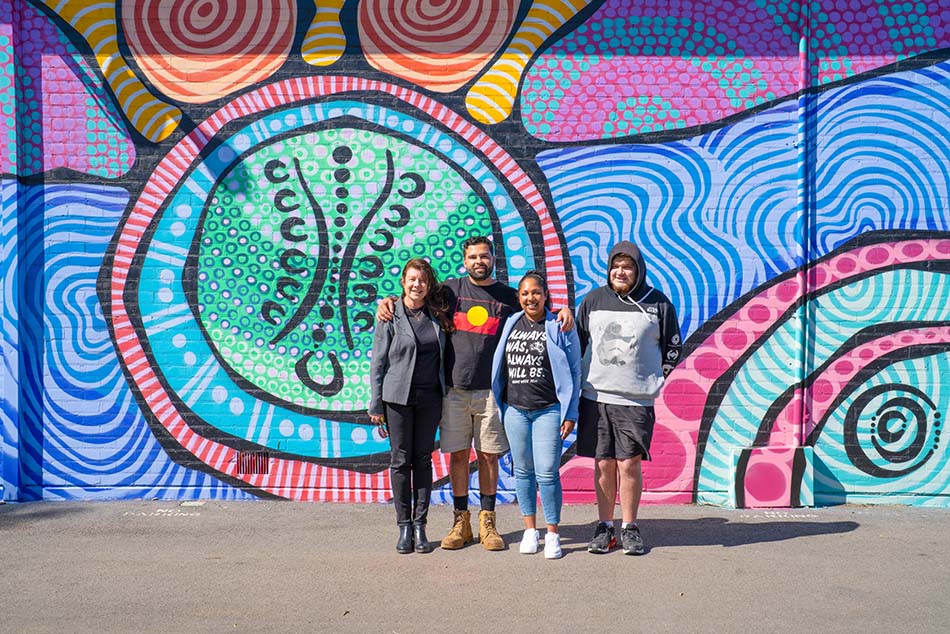
Embracing Cultural Differences
Traveling to the U.S. on a family holiday is vastly different from being a student in the U.S. There is the dizzying feeling of independence, coupled with nervousness and adventure. Many students are accompanied by their parents, while many students make their journey alone—into the world of higher education. Everything around you is new and unfamiliar. Although it’s exhilarating, let’s be honest, it can also be a little overwhelming.
You are not stepping into a country for a month or two—but for four years. Leaving behind the comfort zone of your home—family and friends—and suddenly being exposed to everything new. A new world of cultural differences and experiences. The food, the fashion, the way people greet each other—every little detail can feel both fascinating and, at times, perplexing. Navigating cultural differences can be challenging, but adapting to the changed scenario and you will thrive in your new environment. Isn’t that one of the most enriching parts of studying abroad?
Understanding the cultural landscape
One of the most culturally diverse countries in the world, the United States is often described as a melting pot of cultures. This is where people from all over the world converge, bringing their unique traditions and perspectives. Despite the diversity, some distinct cultural norms can take some getting used to.
Luckily, in today’s interconnected world, as international students, you are comparatively more aware of the cultural aspects of America. Netflix and movies have provided us with great context on the American way of life. For instance, pop culture is an integral part of American society. Television shows are endlessly discussed on social networking sites, at parties, and on lunch outings. It will be appreciated if, as an international student, you take out time to learn about how pop culture plays a role in society and college life.
Another important difference you will find is that Americans from a very young age are independent and tend to value individuality and direct communication. Although aware of this, coming from a different social setting where discretion is considered a value, this can be a bit jarring and may make you feel uncomfortable.
Being open-minded toward these cultural nuances is the first step in your journey of integration with U.S. society.
Read More: How To Set Your Academic Goals
Tips for Navigating Cultural Differences
Improve Communication Skills
Before you reach the U.S., you must work on your language proficiency. Being able to communicate effectively immediately helps you to connect with your peers. There is a stark difference in the way Americans speak, and you must not hesitate to ask for clarification. Even if your first language is English, it may take a while to get used to their way of speaking. But within a few months, you are sure to feel comfortable. Practice active listening, and pay attention to non-verbal cues like body language and tone of voice.
Participate in college sports
Baseball, basketball, and American football form a very large part of American life, especially in college. The sense of pride and camaraderie among college communities is visible during any important game. These are also engaging topics of discussion and a great way to make friends and have fun.
Understanding the college classroom settings
As an international student, you will find it strange that professors and students are on a first-name basis. Going from a country where you are used to calling your teacher Sir and Ma’am/Miss, this will at first seem a bit rude. But acquaint yourself with these informal practices, and this will not surprise you. You will also find large classrooms that could be a bit overwhelming. But you will find that professors and students are more than willing to help international students adjust to new surroundings.
Engage with the Local Community
In your college essay, you are required to answer the prompt regarding “community,” and this is perhaps the best way to familiarize yourself with the culture. Getting involved in the campus community will help you transcend any barriers that you may feel persist. Join clubs, volunteer, attend events, and you will be able to make friends. Seeing you blending in, your peers are sure to go the extra mile to make you feel comfortable.
Also Read: How to Make Winter Break Productive
Seek Support
No one has ever said that they do not feel homesick. Know that it is normal to feel that way. Luckily, universities are aware of this challenging transition time that international students face. Almost all universities have resources specifically for international students. Counseling services, support groups, international student offices, etc. Before applying to or enrolling at a college, international students should consider reaching out to a school’s international student services office. You can gauge an institution’s environment and level of support for international students by starting with a school’s ISS page. Don’t hesitate to reach out if you need help.
Balance tradition with adaptation.
There is no doubt that you will be required to adapt to the new situation. In doing so, it is equally important to stay connected with your tradition and cultural roots. Luckily, in colleges, you will find a huge diaspora of students belonging to your country who share similar backgrounds. Colleges encourage international students to celebrate their traditions and share their culture with their new friends. Likewise, being curious to learn about some American traditions, will also help you integrate with students. Be proud of where you come from and maintain your sense of identity. You must also remember that domestic students are also waiting to learn from international students to expand their intercultural understanding.
Your Journey, Your Growth
The life and college that you have chosen are going to set you off on an adventure. You are beginning to craft your story of transformation. Being exposed to this new horizon will make you embrace a multitude of perspectives. Do not think that you have to lose yourself. Yes! Your international exposure will surely have a profound impact on the way you think, work, and communicate. This is going to be a story of personal growth—an incredible journey. And in the next four years, when you are ready to graduate, you can look back at your 18-year-old and wave a fond goodbye.
Updated on 15/01/25








